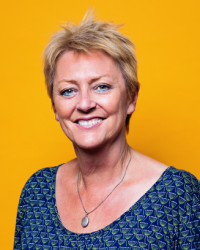Keeping new year resolutions
Now we’re a few days in, how are you doing with your new year resolutions?
Many of us see the new year as an opportunity for change, but resolve on its own isn’t always sufficient. If you plan to make changes, it’s important to be clear about what you want to be different. Vague ideas, such as being more positive, need to be nailed down to actual behaviours that can be done differently. What behaviours do you think would indicate that you were being more positive? Accepting invitations? Booking a holiday? Joining an evening class? Inviting people round? Going out more? Getting a new hairstyle?
Making a list of behaviours which would indicate positivity means you can measure change as you tick items off the list. If you initially aim to do just two before the end of January, you won’t feel overwhelmed by the task you’ve set yourself and may even feel encouraged to move on with the list as a result.
Measurable change
Even when your resolution is more easily measurable – such as losing weight – it can be difficult to do so because you haven’t set a target. Targets need to be realistic so, though you may want to lose a stone, initially set relatively low expectations, such as a kilo by the end of February. If that goes really well, you might aim for three kilos by the end of March. As you will already have lost at least one, you’ll be well on the way and can congratulate yourself all over again when you get to three kilos, rather than berating yourself because things aren’t moving more quickly. Bear in mind that you won’t know until you get going what it is realistic to expect; once you see a pattern, you can reset your targets.
Top tips
- Don’t be put off if you slip. One day when you, say, eat more than planned does not equal failure. Just cut back again the next day.
- Do learn from previous attempts at change. What were the pitfalls last time? What helped? Use your experience to help you plan.
- Don’t make life miserable for yourself by cutting out everything you like. Retain occasional treats and introduce some new things to enjoy or distract you.
- Do tell people that you’re going to attempt change. They can support you and you’re less likely to break your resolve when you have witnesses. Joining a slimming club or smoking cessation course are examples of group activities that help, but you could also just team up with friends. Staying in touch with each other’s progress via a social media page is often helpful so long as it remains supportive rather than too critical or competitive.
- Don’t give up if your change attempt hasn’t worked so far. Rethink it and try to work out what got in the way. Do consider the benefits of changing and look forward to a treat which takes these into account, such as new clothes as you downsize.
- Do attempt change when something else is different. A difference in environment, such as a holiday or work trip, can be especially helpful to get you started. However, changing your daily routine can help you to avoid bad habits or cravings. Often one small change can make a big difference. For instance, if your mid-morning latte is adding to your calorie intake, or is accompanied by an unhealthy snack or a cigarette, cutting out a mid-morning drink, switching to a black coffee or only having a milky drink on a Friday, may be more helpful than you could have imagined.
- Don’t give up if your first attempts don’t succeed. For instance, studies in 2016 suggested that smokers often make more than 30 attempts to give up before they’re successful. However, each attempt makes quitting more likely.
- Do keep a note of your progress. A log of what you’ve done differently and how you’re managing can be highly encouraging.
Good luck!

Find the right counsellor or therapist for you
All therapists are verified professionals
